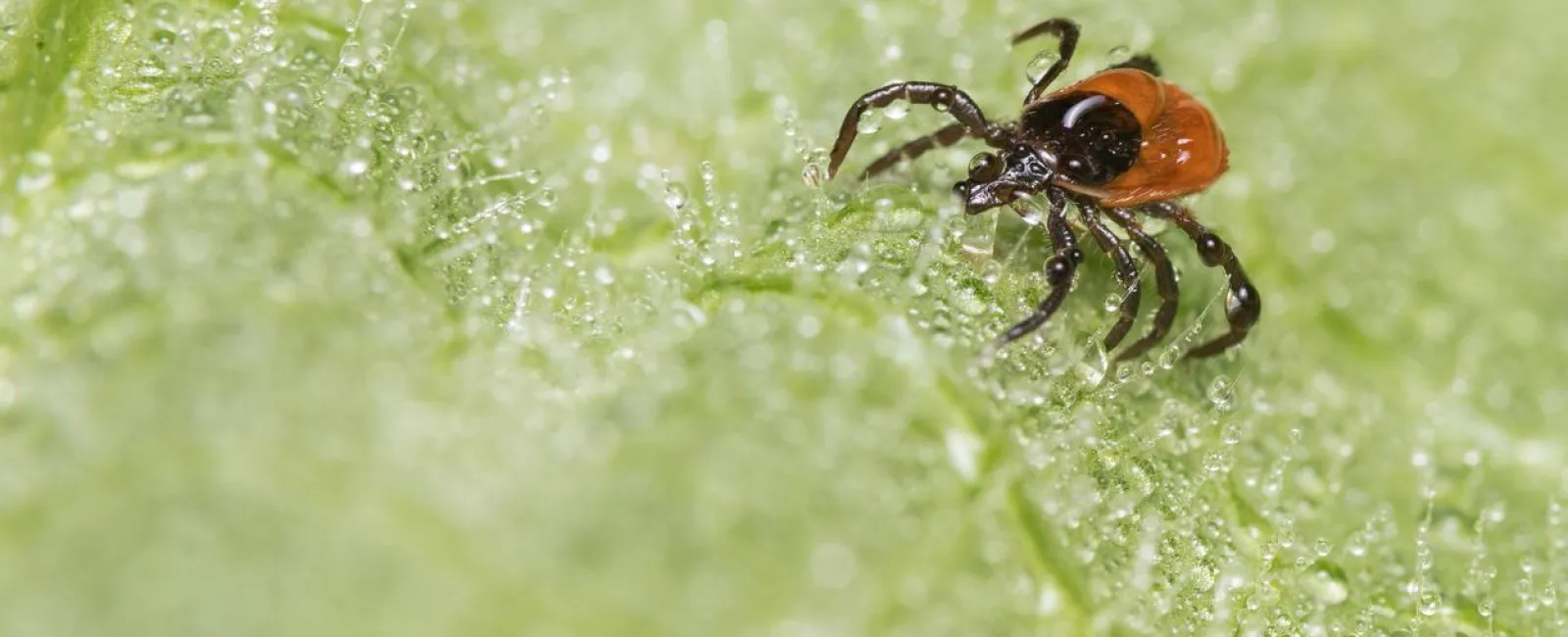Warmer weather is right around the corner, which means pests will start multiplying, including ticks. As carriers of Lyme disease and many other bacteria, these unwanted guests can pose a threat to your well-being this summer. The service professionals at Greenix Pest Control have tips to help reduce your exposure to ticks this summer to keep you, your family, and your pets safe.
What are ticks?
Ticks are bloodsucking insects that often live in many outdoor environments, especially wooded areas of the Northeast, Midwest, and West Coast. Locations with shady, moist hiding spaces near ground level are havens for ticks, including yards in Illinois, Indiana, Wisconsin, Minnesota, Ohio, and beyond.
Ticks are brown or black in color, oval-shaped with 8 legs, and often appear flat. When ticks bite a host, they bury their head underneath the skin of their host to feed anywhere between 3-6 days.
What Does a Tick Bite Look Like?
Tick bites come in a variety of shapes and sizes. If the tick has already fallen off, a bite may appear as a raised bump similar to a mosquito bite. Tick bites on dogs or cats will follow a similar pattern. However, ticks carrying Lyme disease have been known to leave a slight rash appearing like a bull's eye around the bite.
While ticks are tricky to completely prevent, there are steps you can take to lessen your risk.
1. Keep Your Yard Clean
Ticks don't discriminate against the woods or suburbs. Whether there's plant cover, ticks will make a home. Prevent them from settling in your backyard by keeping grass, trees, and shrubbery trimmed neatly. Then, consult pest control professionals for ongoing protection of your home.
2. Cover Your Limbs
Warmer weather often means wearing shorts and short sleeves, but exposed skin is an easy attractor for ticks. Ticks can't bite through clothes, so covering up with even a light linen or athletic fabric deters any ticks from attaching.
3. Use Insect Repellent With Deet and Permethrin
Repellents with at least 20% Deet deters ticks from attaching. However, it's important to use repellent thoroughly through your body and clothes, since ticks will climb into nooks and crevices. In contrast, permethrin is only applied to clothing and will immobilize, rather than deter, ticks.
4. Dry it Out
If you don't plan to wash your clothes immediately after being outside, tumble them on high heat in a dryer for at least 10 minutes. Ticks are prone to drying out, and the heat should kill them and prevent them from wreaking havoc on your home. If you plan to wash your clothes, use hot water, then a heated dryer cycle.
5. Conduct a Full Body Check
Typically, ticks transmit bacteria to their hosts when attached for at least 36 hours. Even if a tick is already attached, a full body check will prevent a tick from causing any more damage. Using a handheld or full-length mirror, examine all parts of your body, including under the arms, in the ears, behind the knees, on the scalp, and between the legs.
For pets, carefully brush through their fur and look in all areas, like under their ears and between their toes.
How to Remove a Tick
Using a clean, fine-tipped tweezer, pinch the tick as close to the skin as possible. Then, use steady and straight pressure to pull out the tick without rotating — wiggling the tick may cause parts to break off underneath the skin. Then, dispose of the tick by flushing it, placing it in alcohol, or sealing it in a container.
What to Do For a Tick Bite
Clean the bite and your hands with rubbing alcohol or soap. Then, monitor the bite and your physical symptoms over the following weeks.
Get Backed by the Experts at Greenix Pest Control
This summer, trust your yard with the pest control professionals at Greenix. Our team will remove adult ticks, eggs, and larvae and treat against future infestations so you can enjoy the warm weather without fear. Don't waste any time — get started with a free quote today!

